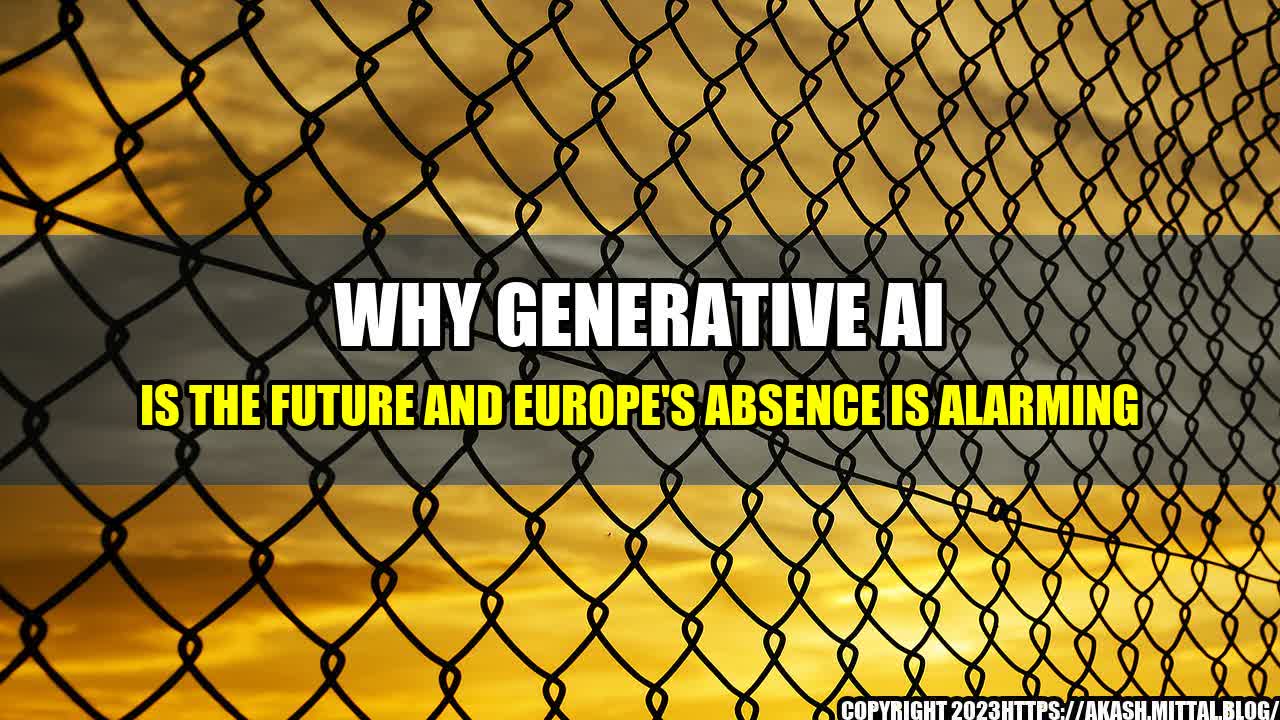
It's no secret that artificial intelligence (AI) is transforming the world we live in. From self-driving cars to personalized recommendations on streaming services, AI is making our lives easier, more efficient, and more enjoyable. But there's one facet of AI that's particularly intriguing: generative AI. This technology allows machines to create original content, from music to literature to art.
The potential applications of generative AI are immense. Imagine a world where every creative work is generated by a machine in a matter of seconds. No more struggling to come up with the perfect melody or prose. With generative AI, the possibilities are endless.
However, despite the potential of generative AI, Europe seems to be lagging behind in this field. The United States and China are dominating the industry, with companies like OpenAI and Tencent leading the charge. Meanwhile, Europe has yet to produce a major player in the generative AI scene.
Europe's absence is alarming, given the immense potential of this technology. Generative AI could revolutionize entire industries and create limitless opportunities for innovation. Yet, Europe is missing out on this opportunity.
So, what are some examples of generative AI in action? One of the most prominent is the music industry. Many musicians are already using generative AI to create original works, such as the album "I Am AI" by Taryn Southern. This album was entirely generated by a machine, from the lyrics to the melodies. And it's not just musicians that are benefiting from generative AI. Visual artists are also using this technology to create stunning artwork, such as the "DeepDream" series by Google.
Another example comes from the gaming industry. Game developers are using generative AI to create entire worlds and characters. The game "No Man's Sky" uses generative AI to create a universe with billions of planets, each with its own unique features. This technology allows game developers to create games that are truly infinite, with limitless possibilities for exploration and discovery.
So, why is Europe's absence in the generative AI scene so alarming? There are several reasons:
Generative AI is an exciting and transformative technology. It has the potential to create entire industries and revolutionize the way we live and work. However, Europe is lagging behind in this field, and that's a cause for concern. By not embracing generative AI, Europe is missing out on countless new opportunities for growth and innovation. The future of generative AI is bright, and Europe needs to catch up if it wants to be a part of that future.
References:
Hashtags: #generativeAI #innovation #technology #future
Category: Technology/Artificial Intelligence
Curated by Team Akash.Mittal.Blog
Share on Twitter Share on LinkedIn